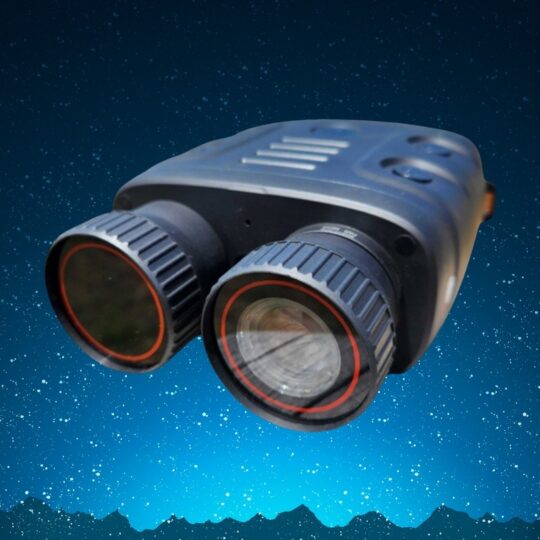Revitalize your mornings with TikTok's Ice Water Hangover Cure! This innovative remedy harnesses the power of the mammalian diving reflex to alleviate hangover symptoms effectively. Simply submerge your face in ice water to reduce nausea and anxiety, allowing your body to reset and recover quickly. Perfect for those who enjoyed a night out and want a fast, natural solution. Easy to use and backed by physiological science, this unique method helps you bounce back, making it a must-have for every socialite. Choose this refreshing approach to conquer hangovers and embrace a brighter, more energetic day!
Description
TikTok has become a global hub for health hacks and wellness trends. From chlorophyll water to mouth taping for better sleep, viral videos frequently claim to have the next breakthrough for common problems. The latest sensation making waves—literally—is the ice water hangover cure. TikTok creators are plunging their faces into bowls of ice water and swearing it provides instant relief from pounding headaches, nausea, and morning-after brain fog.
The videos are striking: influencers, visibly exhausted from a night of drinking, submerge their faces in water loaded with ice cubes. Seconds later, they resurface looking refreshed and alert, claiming the hack has “reset” their bodies. The trend has racked up millions of views, inspiring thousands to try it themselves.
But does this method actually help, or is it just another fleeting social media fad? In this in-depth research article, we’ll break down:
- The science of hangovers and why they’re so difficult to treat
- How cold exposure affects the body, including the mammalian diving reflex
- Expert insights on whether ice water immersion is effective or safe
- A comparison of this trend to evidence-based hangover remedies
- How TikTok’s algorithm fuels health hype
Let’s take a closer look at what’s behind this icy internet sensation.
Hangovers: A Complex Physiological Puzzle
Hangovers are notoriously tricky to cure because they stem from multiple factors. When alcohol enters your system, your body undergoes a series of metabolic and hormonal changes that create a cascade of unpleasant effects.
Dehydration and Electrolyte Loss
Alcohol acts as a diuretic, meaning it makes your body flush out more fluids than usual. This dehydration contributes to headaches, dizziness, and a dry mouth the next morning.
Toxic Byproducts of Alcohol
When your liver breaks down ethanol, it produces acetaldehyde, a toxic compound far more harmful than alcohol itself. Acetaldehyde accumulation is thought to be one reason hangovers feel so awful.
Inflammation and Immune System Activation
Studies show that alcohol triggers an inflammatory response, which contributes to feelings of malaise, aches, and fatigue.
Blood Sugar Drops
Alcohol consumption can decrease blood sugar levels, leading to shakiness, mood changes, and weakness.
Sleep Disruption
Even if you get a full night’s rest, alcohol prevents deep REM sleep, leaving you groggy and unfocused.
Because so many biological systems are disrupted by drinking, hangovers are a multifactorial condition. There’s no single “magic bullet” treatment, which is why quick-fix hacks are often ineffective.
The Ice Water Hangover Trend Explained
TikTok creators promoting this trend typically follow a simple protocol:
- Fill a bowl or sink with ice cubes and cold water.
- Submerge your face for 10–15 seconds.
- Repeat two or three times.
Many users report an immediate sense of relief, describing it as “waking up your nervous system” or “resetting your body.” Some even suggest taking a full cold shower or plunge for an even greater effect.
The underlying concept comes from cold exposure therapy—an ancient practice embraced by modern wellness influencers like Wim Hof. But this trend focuses specifically on the face dunk, leveraging a fascinating biological reflex humans share with other mammals.
The Mammalian Diving Reflex: Nature’s Cold Survival Mechanism
When cold water touches your face—particularly the areas around your eyes and nose—your body activates a primitive reflex designed to conserve oxygen and protect vital organs during submersion.
What Happens in the Body
- Bradycardia: Your heart rate slows down dramatically, conserving oxygen.
- Peripheral Vasoconstriction: Blood vessels in your arms and legs constrict, shunting blood toward your brain and heart.
- Vagus Nerve Stimulation: The cold triggers your parasympathetic nervous system, helping you feel calm and reducing anxiety.
For someone suffering from hangover-related nausea or jitters, this can feel like a dramatic reset. The sudden activation of the vagus nerve can reduce palpitations and anxiety, while the shock of the cold water heightens alertness.
Cold Therapy in Modern Wellness Culture
Though TikTok makes this trend look like a new discovery, cold therapy has been practiced for centuries. Scandinavian countries have long embraced alternating sauna sessions with icy dips, while athletes use ice baths to recover from intense training.
Modern research shows cold exposure can:
- Increase norepinephrine levels, boosting alertness and focus
- Decrease inflammation markers in the body
- Temporarily raise metabolic rate
- Improve circulation over time
However, these benefits are typically observed with consistent, full-body immersion, not a single 30-second face dunk.
What Experts Are Saying
Medical professionals emphasize that while this hack isn’t inherently dangerous for most people, it should be viewed as a temporary relief tool, not a cure.
Why It Might Help
- Reduces anxiety by activating the parasympathetic nervous system
- Provides a mental “reset,” helping you feel more awake
- Offers short-term nausea relief
Why It’s Not a Cure
- Doesn’t speed up alcohol metabolism
- Doesn’t reverse dehydration or replenish electrolytes
- Doesn’t resolve inflammation
Doctors also warn that those with heart conditions, high blood pressure, or respiratory problems should avoid sudden temperature shocks.
Comparing Ice Water Dunking to Proven Hangover Remedies
While plunging your face in ice water can make you feel better for a moment, it pales in comparison to these tried-and-true strategies:
Hydration and Electrolytes
Drinking water or electrolyte solutions like sports drinks is the most effective way to combat dehydration.
Nutritious Meals
Complex carbs, protein, and healthy fats help stabilize blood sugar levels and replenish nutrients depleted by alcohol.
Sleep and Recovery
The body needs time to repair itself after alcohol exposure, making rest essential.
Over-the-Counter Medications
Ibuprofen or aspirin can help relieve headaches and muscle aches, but they should be taken cautiously to avoid stomach irritation.
Prevention First
The best way to avoid a hangover is to pace your drinking, eat beforehand, and alternate alcoholic beverages with water.
The Psychology of TikTok Health Trends
One reason this hack has become so popular is psychological impact. The dramatic act of plunging your face into icy water is stimulating and feels like a “reset button.” TikTok’s visual nature amplifies this effect, as viewers see dramatic before-and-after reactions in real time.
Social media trends also tap into people’s desire for quick fixes. In a world where hangovers can last 12–24 hours, a 15-second solution is appealing—even if it doesn’t address the root causes.
How to Try It Safely
If you’re curious about experimenting with this viral hack, follow these safety guidelines:
- Use a clean bowl or sink with plenty of ice cubes.
- Limit submersion to 10–15 seconds at a time.
- Repeat no more than three times.
- Avoid if you have cardiovascular or respiratory conditions.
- Pair it with hydration and nutrition for real recovery.
The Future of Hangover Science
Researchers are actively studying ways to mitigate alcohol’s aftereffects. Promising developments include:
- Dihydromyricetin (DHM): A flavonoid that may reduce alcohol toxicity.
- Probiotics and Gut Health: Studies link gut health to better alcohol tolerance.
- Hydration Therapy Clinics: IV drips offering fluids and vitamins are popular in urban centers, though not necessary for mild cases.
Despite these advances, hangovers remain best treated with time, rest, and prevention.
Conclusion: A Refreshing Trend, But Not a Cure
TikTok’s ice water hangover hack is a fascinating blend of old science and new media. The mammalian diving reflex is a real and well-documented phenomenon, and it explains why this trick can provide brief relief from nausea and anxiety. But it’s not a cure, and it won’t fix dehydration, liver strain, or low blood sugar.
Still, if done safely, this hack can be a refreshing way to jumpstart your recovery—just don’t let it replace the basics of hydration, rest, and nutrition.
Ultimately, this trend reflects a broader truth: people crave quick, accessible solutions to everyday problems. TikTok has become a powerful platform for spreading wellness ideas, but science-backed habits remain the best defense against hangovers.





